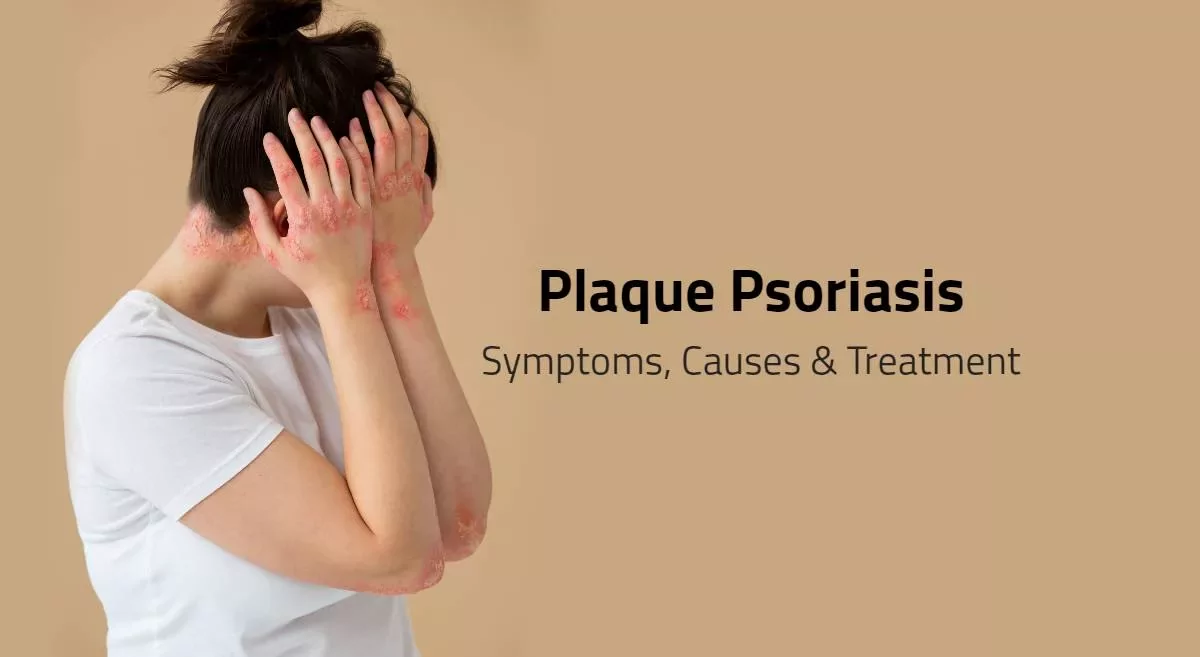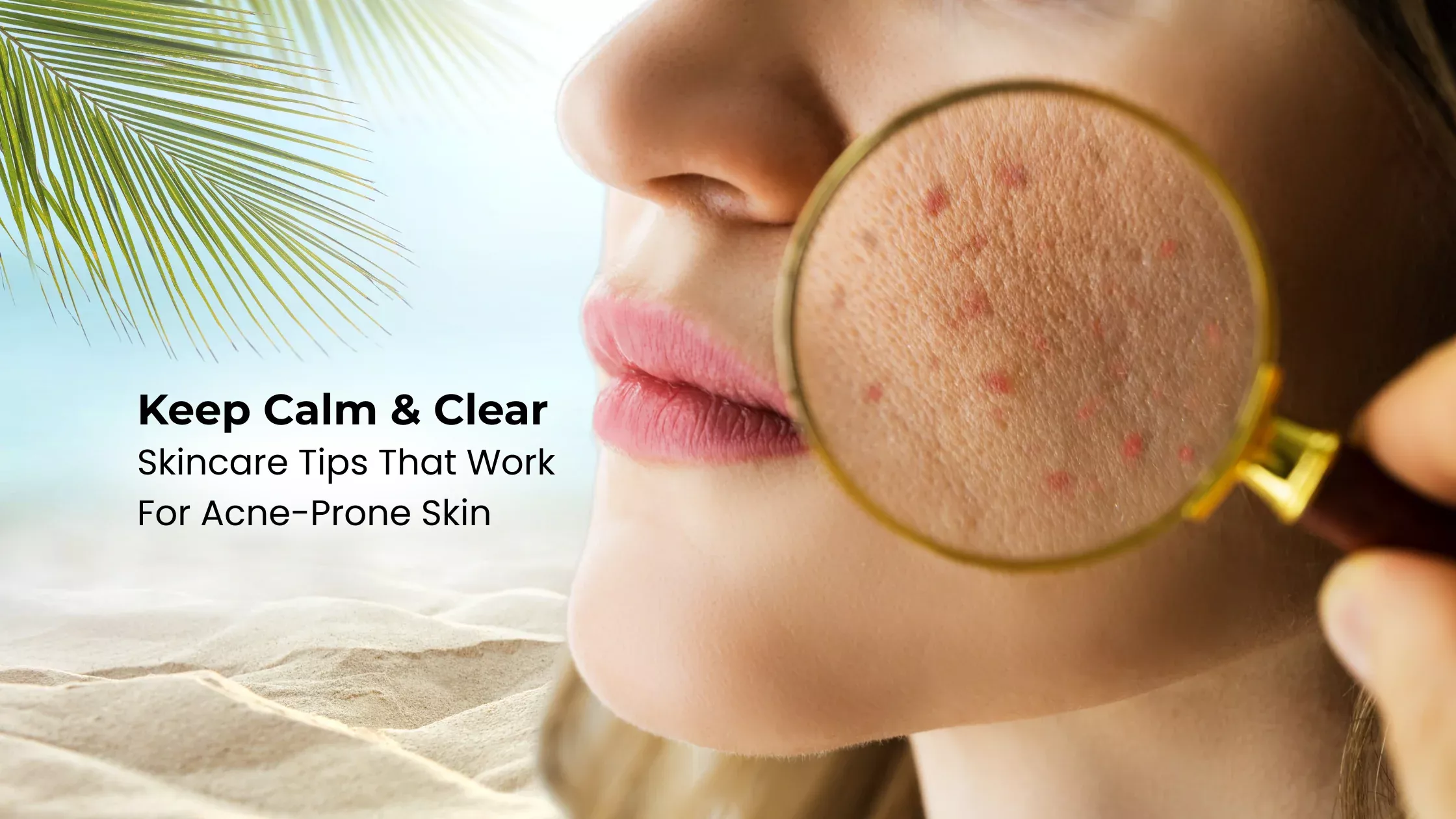Plaque Psoriasis is the most common kind of psoriasis that affects nearly 3% of the adult population. This type of psoriasis is seen in approximately 8 out of 10 psoriasis patients. It is also called 'psoriasis vulgaris'. Itching and pain may be brought on by this particular skin condition. The most prevalent variety of plaque psoriasis results in thick, scaly skin areas. Although there is no cure for psoriasis, our best dermatologist hospital in Bangalore can suggest medication to manage symptoms. For advanced care and personalized treatment, visiting a reputed Dermatology Hospital in Hebbal Bangalore can help manage persistent skin conditions effectively.
What is psoriasis?
Psoriasis is an immune-mediated disease that causes inflammation in the body. It is also referred to as a disease with an unknown cause characterised by inflammation caused by immune system dysfunction. Bulged scales on the skin may be visible signs of inflammation. This happens because an overactive immune system accelerates skin cell growth.
Normal skin cells generally grow and fall off in a month. In a patient affected by psoriasis, the skin cells pile up on the surface of the skin due to shedding. In some cases, patients report that psoriasis plaques sting, itch, and burn. Plaques and scales can form everywhere on the body, although they are most frequent on the elbows, knees, and scalp. Symptoms may appear between the ages of 15 and 25 years; however, they can occur at any age. Psoriasis can affect men, women, and children of all skin hues. If symptoms worsen, consulting experienced Dermatologists in Hebbal Bangalore ensures timely diagnosis and the right course of treatment.
Psoriasis-related inflammation can affect different organs and tissues in the body. People who have psoriasis may also have additional health problems. One in every three people who have psoriasis will develop psoriatic arthritis (PsA). PsA symptoms include oedema, stiffness and discomfort in the joints and surrounding areas. PsA is often misdiagnosed, especially with regard to its milder variants. However, it is critical to treat PsA as soon as possible to avoid permanent joint injury.
What causes psoriasis?
Psoriasis patients have an overreacting immune system, causing inflammation and the rapid growth of new skin cells.
Regeneration of skin cells happens every 28–30 days on average. However, new cells sprout and travel to the skin's surface every three to four days in people with psoriasis. The silvery scales that are a classic symptom of psoriasis are caused by the replacement of old cells with new cells.
Psoriasis is mostly inherited. There could be a hereditary factor. Parents can pass it on to their children.
What causes psoriasis outbreaks?
Psoriasis flare-ups vary from patient to patient. Nobody knows what triggers flare-ups. Some common triggers include:
- Skin damage (cuts, scrapes, or surgery)
- Emotional strain
- Streptococcal or other immune-compromising infections
- Some prescription drugs (such as lithium and beta blockers)
- Less exposure to sunlight and humidity and more exposure to hot, dry interior air in the cold weather
What are the symptoms of psoriasis?
Signs and symptoms of psoriasis differ based on the type of psoriasis you have. The following are the five most prevalent psoriasis symptoms:
- Patches or rashes of red, irritated skin that are often covered in loose, silver-colored scales; in severe cases, the plaques will expand and combine, covering vast areas.
- Uncomfortable, itchy skin that can crack or bleed
- Small patches of bleeding where the implicated skin is scraped
- There are issues with your fingernails and toes, such as discolouration and pitting; the nails may also crumble or detach from the nail bed
- Scaly patches on the scalp
Psoriasis can also be connected with PsA, a condition characterised by achy, swollen joints. This painful joint problem affects 10–30% of patients with psoriasis.
What type of psoriasis treatment will I need?
Psoriasis can be treated in several ways. Creams or ointments may be sufficient to alleviate the rash in small regions of the skin. If the rash spreads or you have joint pain, you may require additional treatment.
Some of the factors that affect your treatment plan include:
- Your age.
- The severity of the rash
- The location of the rash on your body
- Your general health
Common psoriasis treatments include:
- Steroid creams
- Dry skin moisturisers
- Anthralin, which is a drug that slows the formation of skin cells
- Medicated bath treatments, lotions and shampoos to treat psoriasis of the scalp; in severe circumstances, your practitioner may combine it with ultraviolet (UV) light therapy
- Ointment containing vitamin D3
- Creams containing vitamin A or retinoid
What are the other options if psoriasis treatment does not work?
If your psoriasis does not improve, your doctor may suggest the following treatments:
1. PUVA:
This treatment combines psoralen medicine with exposure to a specific type of UV radiation.
2. Cyclosporine:
This medication can help people with severe psoriasis. However, it has been linked to excessive blood pressure and kidney damage.
3. Methotrexate:
This medicine is sometimes prescribed by doctors for severe cases. It can cause damage to the liver. If you take this medication, your doctor will keep track of your progress through blood tests. Periodic liver biopsies may be required to monitor your liver's health.
4. Retinoids:
These vitamin A-related medications might have negative side effects, such as birth abnormalities.
5. Immune therapies:
Newer immunotherapy drugs work by inhibiting the body's immune system, preventing it from initiating an autoimmune illness like psoriasis.
6. Radiation therapy:
UV light at specific wavelengths can help reduce skin inflammation and inhibit cell formation.
FAQs:
1. Is psoriasis contagious?
Psoriasis cannot be passed from one person to another.
2. Who is at risk of plaque psoriasis?
Caucasians are more likely to develop psoriasis.
3. What organs can be affected by psoriasis?
This autoimmune condition affects your skin and connective tissue, making them harden and tighten.
4. Is plaque psoriasis painful?
Plaque psoriasis is an inflamed, raised, scaly patch on the skin that can be uncomfortable and painful.
5. What clears psoriasis quickly?
Salicylic acid shampoos and scalp treatments help to minimise scalp psoriasis scaling.











